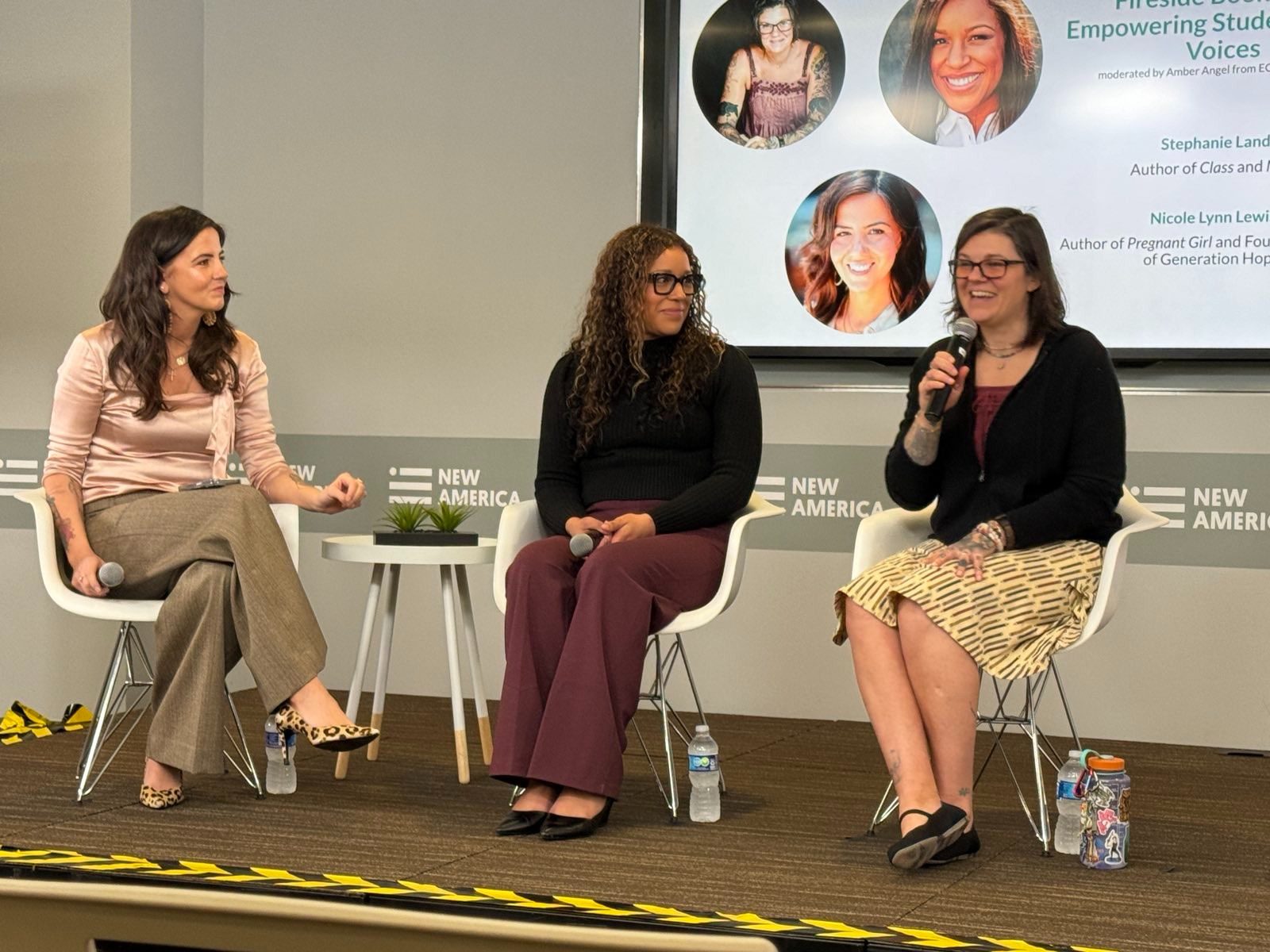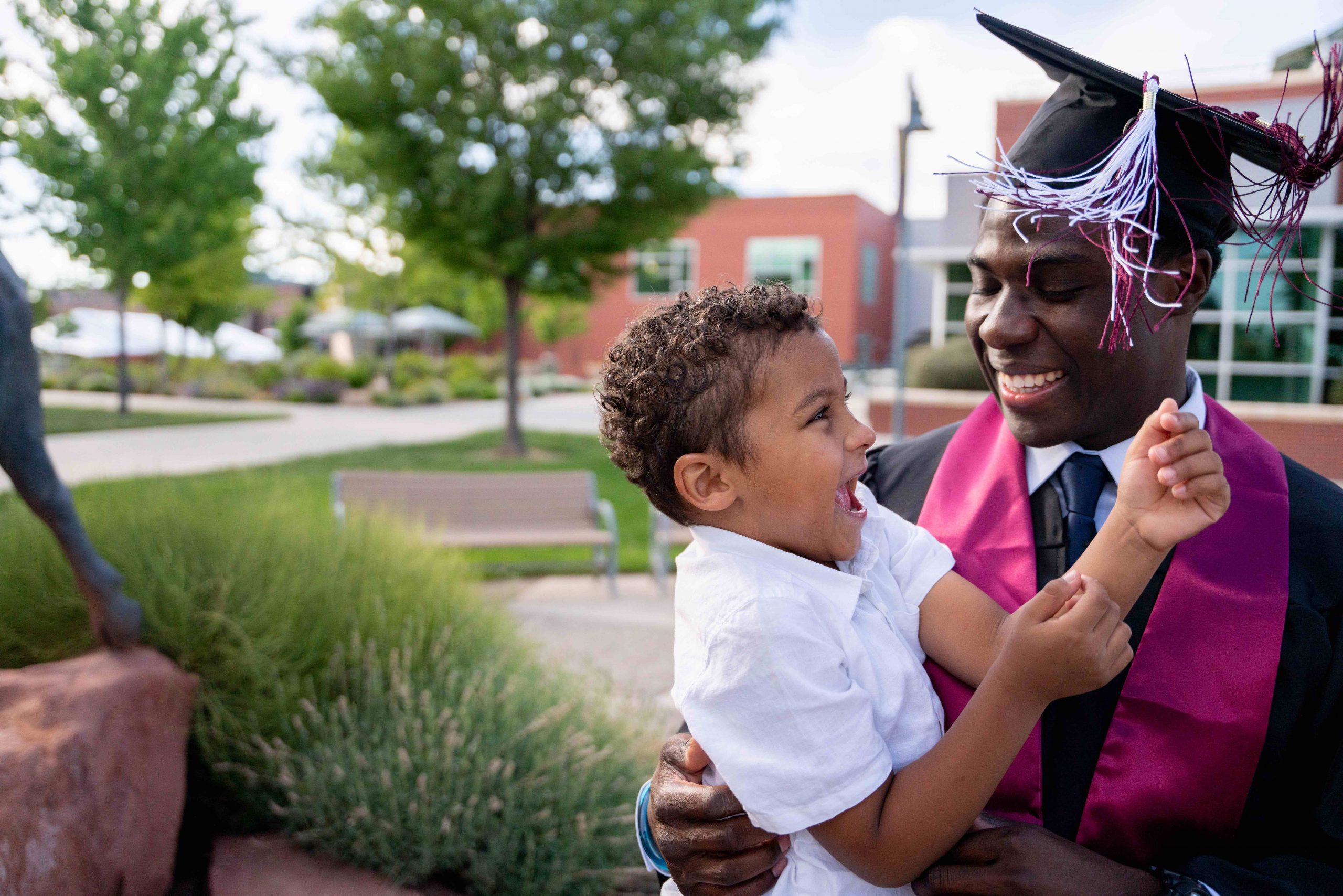United States 
Authoring a New Narrative on the College Experience
Five Insights on How to Support Student Parents—From Former Student Parents

United States 
Five Insights on How to Support Student Parents—From Former Student Parents

Today’s college students are often up against big hurdles to their success—and not just those found in the storylines we see in pop culture, like landing the top internship or getting accepted into their choice college.
Two memoirs released in the last few years by former student parents paint a new narrative on the college experience. Stephanie Land (“Class”) and Nicole Lynn Lewis, (“Pregnant Girl”) recount their challenges, despair, joy and triumphs of their journey in candid and raw details. “Class” picks up where Stephanie’s first book, “Maid,” left off, as she decides to pursue her dream of being a writer by enrolling in college – a dream that often felt too far out of reach. In “Pregnant Girl,” Nicole wrestles with her isolating college journey as a teen mom.

These bestsellers paint the reality that so many of today’s college students face: food and housing insecurity, access to reliable transportation and internet – all while trudging through a system that few in their family or communities have navigated before. That’s hard enough for any single student to persevere through, but nearly 4 million college students are not only doing this just for themselves, but also for their children.
While they make up one in five of all US college students – a share that is comparable or higher to other student populations that colleges focus their resources toward supporting – their stories are still largely absent from our public consciousness.
The veil is starting to lift, thanks to a growing group of advocates, researchers, journalists, policymakers, funders and many others who are committed to advancing changes, shifting the system, and changing the narrative on who belongs in college.
I didn’t ask for help because I thought people would become concerned with a capital C.
Stephanie Land, Author of “Class” and “Maid”

Recently, Stephanie and Nicole shared the stage, at an event hosted by New America, presented in partnership with Imaginable Futures, where they discussed the importance of telling one’s authentic and true story. Their moving conversation was moderated by Amber Angel of ECMC Foundation, a former single mother student, who is dedicated to helping to shape the future of the student parent movement. Here are 5 insights that we heard from their conversation:
29% of my campus were parents — Why was I made to feel so alone?
Amber Angel, ECMC Foundation
The two women’s stories have continued to make waves after they published their memoirs. Stephanie’s first book inspired the Netflix hit series “Maid,” and was listed on Barack Obama’s summer reading list. The success of the movie and book helped her secure her second book,”Class,” chronicling her experience. Her story has also been covered by major news outlets including New York Times, Los Angeles Times, NPR, among many others. “Pregnant Girl” has been profiled on NPR’s Fresh Air and featured as part of Steph Curry’s Book Club, Nicole has been named a CNN Hero and 2023 Washingtonian of the Year,and her work at Generation Hope, an organization she founded, has been featured on Good Morning America and in The Washington Post and many others.
Their stories are resonating with audiences who are increasingly eager for solutions to larger, systemic issues – like child care, racial equity, and economic mobility.This sentiment underscores the throughline in both women’s student parent stories – that student parents have valuable insights and experiences to contribute to their campuses, something colleges should be eager to nurture.
As Nicole powerfully noted, “We need to look at the college degree as the vehicle for our brilliance, rather than the thing that makes us brilliant.”
We need to look at the college degree as the vehicle for our brilliance, rather than the thing that makes us brilliant.
Nicole Lynn Lewis, Generation Hope